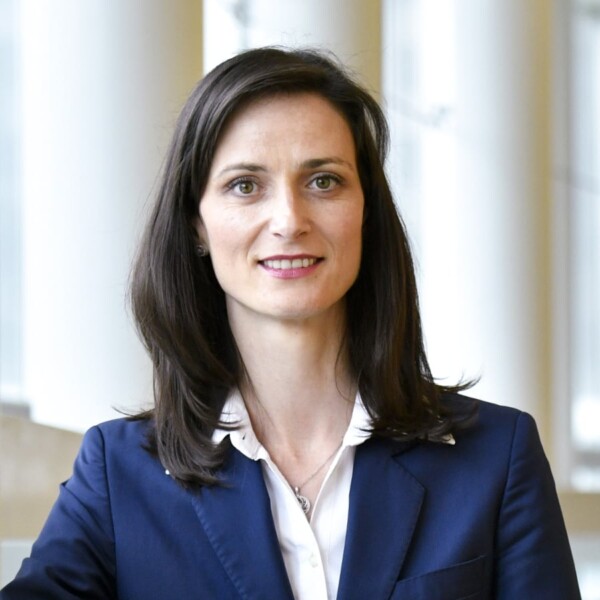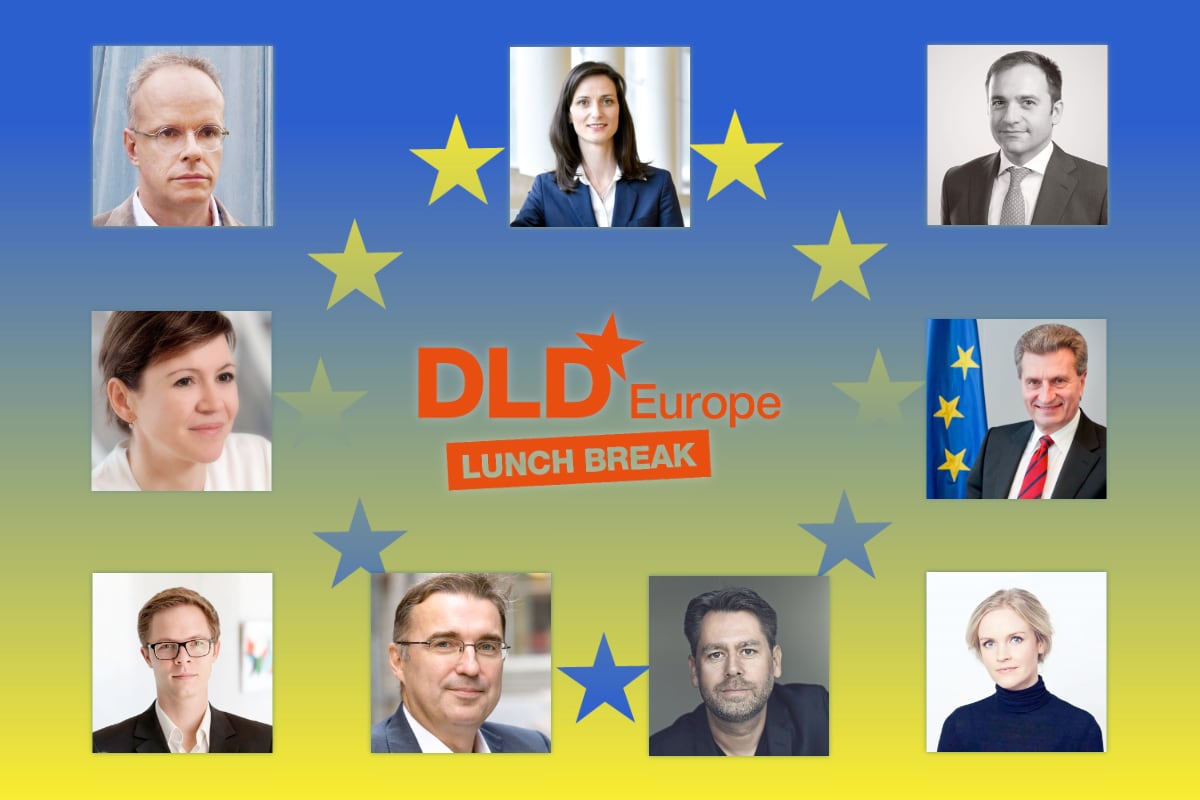
Europe: Powerhouse of Innovation
Top research, growing investments and a lively startup culture give Europe a good chance to become an innovation leader. DLD Europe 2020 showed how.
Top-notch universities, almost 750 million highly educated citizens, cultural diversity, a lively startup scene, and investors with plenty of money to finance new ideas: In theory, Europe has all it takes to be a world leader in innovation. So what’s missing?
Mariya Gabriel feels a lack of coordination is holding the continent back. The EU Commissioner for Innovation, Research, Culture, Education and Youth wants to make a coordinated effort across member states, regions and disciplines to bring out the best in what the Union has to offer.
Her goal is to create a “European Innovation Area that will provide a coherent approach” of all initiatives coming out of Brussels, she told the audience in her opening keynote for DLD Europe 2020, which this year was held as a series of video talks, due to the Covid-19 pandemic.

Mariya Gabriel
EU Commissioner for Innovation, Research, Culture, Education and Youth
“I’m eager to learn what the innovators across Europe have to say to build a true single space for innovation in Europe.”
The need for better coordination was obvious, Gabriel argued. Europe’s “strong scholarship output is not yet producing the innovative economy that I want to see”, she said. “We can do better in turning our scientific power into economic gains.”
Creating a European Innovation Area would have several benefits, the EU Commissioner stated. It would “complete the knowledge triangle” of research, education and innovation and also offer a chance to “boost underutilized regional potential” in order to “increase European competitiveness as a whole and to reduce the innovation divide” between countries, metropolitan areas and different regions across the continent.
Gabriel ended her talk with a call to participate in shaping her initiative. “There are a lot of questions that we can ask”, she said. “What are the priorities for you? How can you imagine the implementation of these priorities in order to see the benefits on the ground, where you are working?”
The more input the EU Commission will get, the more lively the idea exchange, the better, Gabriel said. “I’m eager to learn what the innovators across Europe have to say to build a true single space for innovation in Europe. Because we can do it only together.”
Money, Climate, Change
How to explain Europe’s missing drive to become a leader in digital transformation? Part of the answer might be the lack of both internal and external forces driving tighter integration of the diverse group of nations and cultures that have come together in the European Union – largely for pragmatic purposes.
“Not once in history has Europe been about love. Not even about friendship”, Elisabeth Löwenbourg-Brzezinski, Principal at Acton Capital in Munich, pointed out. “It has been about steel and coal, trade and tariffs, about the absence of war.”
But to make progress the continent desperately needs more than mere pragmatism, she argued – it needs a kind of “every-day affection, appreciation and friendship of European citizens for each other and for Europe.”
Now, with digitization, climate change and the Covid-19 pandemic coming together, “we have a historic chance to ignite this kind of love and create a positive narrative for Europe”, Löwenbourg-Brzezinski said.

Elisabeth Löwenbourg-Brzezinski
Principal, Acton Capital
“Today, we don’t need an outside nation state enemy. We have the climate crisis, around which the people of Europe can rally for the ecological, sustainable transformation of the economy.”
In its proposal for a European Green Deal, the EU Commission promises to spend at least 100 billion euros to make Europe “the first climate-neutral continent” by 2050.
Still, government aid will hardly be enough to achieve this ambitious goal. Companies – and society as a whole – should push public and private investors to support the shift to a greener economy, Elisabeth Löwenbourg-Brzezinski demanded: “Hold finance accountable for climate action!”
Acton Capital, her own company, makes it a legal obligation for startups that receive an investment to adopt a climate strategy and to pay managment attention at the top management level, she said. “And guess what, entrepreneurs and founders are loving it!”
Estonian politician Andres Sutt similarly demanded to see opportunity in the crisis. “Corona has forced us all to innovate”, he said in his DLD Europe Lunch Break talk. “We need to use this period of low interest rates to finance the change in the economy that makes our ecosystem more efficient and more environmentally friendly. This is what the planet expects of us, this is what the next generations expect from us, and this is what we can – and should – deliver.”
Sutt also warned that Europe was in danger of falling behind China and the United States unless the continent quickly found a way to make the most of its strengths.

Andres Sutt
Member of the Estonian Parliament
“Europe together has the scale and size, has capital and skills to become a global leader in innovation and technology.”
A New “New Deal” for the Arts
When the Great Depression hit the United States in the 1930s, President Franklin D. Roosevelt created his famous New Deal – a range of government initiatives to keep the economy running and provide jobs for millions of Americans.
As part of the program, through the so-called WPA, the government also hired more than 10,000 painters, writers, photographers and composers to create public works of art. Many of these artists – like Dorothea Lange, Jackson Pollock or Walker Evans – became world famous, and the work they did in those years is now seen as iconic.
“The program’s many initiatives allowed young artists the possibility to work in an otherwise destitute environment and triggered an explosion of creative talent in the following decades”, Hans Ulrich Obrist, Artistic Director at London’s Serpentine Galleries, observed in his talk.

Hans Ulrich Obrist
Artistic Director, Serpentine Galleries
“It’s our collective role to support artists and culture… If there was ever a time that the world needed artists, it’s now.”
Today, the Covid-19 pandemic has created a similarly existential crisis for artists, and governments should take the New Deal as an example for how to respond, Obrist believes. “An art stimulous project similar in scale to the WPA is urgently needed”, he said. “The idea is highly relevant for the moment – both in terms of helping the economy and helping artists.”
The EU should make sure, however, to create a unified program instead of a patchwork of initiatives, Obrist demanded. “The big problem right now is that all of these discussions are held on a national basis.” In contrast, Obrist said, a truly European “New New Deal for the Arts” could be a “great opportunity” for the continent to create jobs, enrich culture and benefit society – similar to the original New Deal’s achievement almost 90 years ago across the Atlantic.

Watch all presentations on our dedicated DLD Europe 2020 page.